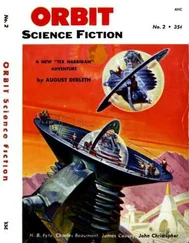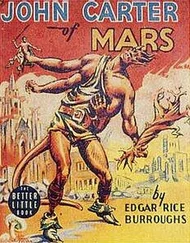Philip Dick - Mary And The Giant
Здесь есть возможность читать онлайн «Philip Dick - Mary And The Giant» весь текст электронной книги совершенно бесплатно (целиком полную версию без сокращений). В некоторых случаях можно слушать аудио, скачать через торрент в формате fb2 и присутствует краткое содержание. Жанр: Фантастика и фэнтези, на английском языке. Описание произведения, (предисловие) а так же отзывы посетителей доступны на портале библиотеки ЛибКат.
- Название:Mary And The Giant
- Автор:
- Жанр:
- Год:неизвестен
- ISBN:нет данных
- Рейтинг книги:4 / 5. Голосов: 1
-
Избранное:Добавить в избранное
- Отзывы:
-
Ваша оценка:
- 80
- 1
- 2
- 3
- 4
- 5
Mary And The Giant: краткое содержание, описание и аннотация
Предлагаем к чтению аннотацию, описание, краткое содержание или предисловие (зависит от того, что написал сам автор книги «Mary And The Giant»). Если вы не нашли необходимую информацию о книге — напишите в комментариях, мы постараемся отыскать её.
Mary And The Giant — читать онлайн бесплатно полную книгу (весь текст) целиком
Ниже представлен текст книги, разбитый по страницам. Система сохранения места последней прочитанной страницы, позволяет с удобством читать онлайн бесплатно книгу «Mary And The Giant», без необходимости каждый раз заново искать на чём Вы остановились. Поставьте закладку, и сможете в любой момент перейти на страницу, на которой закончили чтение.
Интервал:
Закладка:
"Did you call the landlady?"
"Naturally." Tweany scowled. "A plumber was supposed to show up. The usual runaround." He lapsed into moody silence.
"Her name's Mary Anne Reynolds," Nitz said, indicating the girl.
"How do you do, Miss Reynolds," Tweany said, with a formal nod.
Mary Anne said, "Your singing is real cool."
The man's dark eyebrows moved. "Oh? Thank you."
"I come here every chance I get."
"Thank you. Yes, I believe I've noticed you. Several nights, in fact." Tweany stirred. "I have to go phone. I can't have my sofa ruined."
"Imported Tasmanian mohair," Nitz murmured. "The extinct, primitive, fuzzy-haired mo."
Tweany was on his feet. "Glad to have met you, Miss Reynolds. I hope I'll see you again." He departed in the direction of the phone booth.
"The green fuzzy-haired mo," Nitz added.
"What's the matter with you?" Mary Anne demanded, annoyed by Nitz's singsong of dissent. "I read about a hot-water heater that exploded and killed a whole bunch of children."
"You read that in an ad, a Prudential ad. Seven danger signs of cancer. Why didn't I insure my roof?" Nitz yawned. "Use aluminum pipe ... deters garden pests."
Mary Anne looked after Tweany, but she could no longer see him; the haze had swallowed him up. She wondered how it felt to know somebody like him, to have such a big man nearby.
"You're wrong," Nitz said.
She started. "What?"
"About him. I can tell the way you're looking ... there you go again. Another plan."
"What plan?"
"Always. You in your coat, and your hands in your pockets. Standing around somewhere, with that worried, plotting look on your face. Waiting for somebody to show. What's the trouble, Mary? You're smart enough; you can take care of yourself. You don't need brave Sir Noodlehead to protect you."
"He's got poise," she said. She was still watching; he was bound to reappear. "I respect that. Poise and bearing."
"What's your father like?"
She shrugged. "None of your business."
"My father," Nitz said, "used to sing me good-night songs."
"So," she said. "Fine."
"They do that," Nitz murmured. "Mum, mum, mum," he trailed off sleepily. "Oh, I see my coffin comin' , mamo. Whump, whoo-whoo." He tapped on the piano with a coin. "Now play it. Yah."
Mary Anne wondered how Nitz could be sleepy when there were so many things to worry about. Nitz seemed somehow to expect the world to take care of itself. She envied him. She wished, suddenly, that she could let go for a moment, relax long enough to have comforting illusions.
In her mind appeared the remnant of a long-ago rhythm, a terrifying lullaby. She had never forgotten it.
... If I should die before I wake ...
"Don't you believe in God?" she said to Nitz.
He opened one eye. "I believe in everything. In God, in the United States, in power steering."
"You're not much help."
In the corner of the bar Carleton Tweany had reappeared. He was chatting with groups of patrons; tolerant, superior, he moved from table to table.
"Pay no attention to him," Nitz mumbled. "He'll go away." The shape of Carleton Tweany neared, and again she tensed herself. Nitz radiated disapproval, but she was far above caring; she had made up her mind. Now, in a quick single motion, she was on her feet. "Mr. Tweany," she said, and apparently her feeling was there in her voice, because he paused.
"Yes, Miss Mary Anne?" he said.
She was suddenly nervous. "How's-your hot water heater?"
"I don't know."
"What did the landlady say? Didn't you call her?"
"I called, yes. But I couldn't get hold of her."
Breathlessly, afraid he would start on, she demanded: "Well,
what are you going to do?"
The man's lips twitched, and, gradually, his eyes filmed behind shadow. Turning to Paul Nitz, who was still slumped at the piano bench, he said: "Is she always like this?"
"Most of the time. Mary lives in a universe of leaky pots."
She flushed. "I'm thinking of the people downstairs," she said defensively.
"What people?" Tweany asked.
"You're on the top floor, aren't you?" She hadn't lost him yet, but he was beginning to slide away. "It'll drip down on them-it'll ruin their walls and ceilings."
Tweany started off. "They can sue the landlady," he said, dismissing the subject.
"How long before you're through singing?" Mary Anne asked, hurrying after him.
"Two hours." He grinned with superiority.
"Two hours! Maybe they'll be dead by then." She had a vision of chaos; erupting geysers of water, splintered boards, and, behind everything else, the sound of fire. "You better go over right now. You can sing later. It isn't fair to those other people. Maybe there're children downstairs. Are there?"
Tweany's amusement faded to exasperation; it did not please him to be bossed. "Thank you for Your interest."
"Come on." She had decided.
He gaped at her with dense vacantness. "What's that, Miss Mary Anne?"
"Come on!" She caught hold of his sleeve and tugged him toward the door. "Where's your car?"
Tweany was indignant. "I'm perfectly capable of handling the situation."
"In the lot? Is your car in the lot?"
"I don't have a car," he admitted sulkily; his cream and yellow Buick convertible had recently been repossessed.
"How far is it?"
"Not far. Three or four blocks."
"We'll walk." She was determined to keep within physical reach of him; and, in this urgency, she had swallowed his problem whole.
"You're coming along?" he was asking. "Certainly." She started off.
Tweany reluctantly followed. "Your interest is not necessary." He seemed to expand behind her, to become even taller and more upright. He was a troubled commonwealth. He was an empire plagued at its borders. But she had stirred him into action; she had, in her need of him, prodded him into awareness of her. Holding the street door open, she said: "Stop wasting time. We'll be back; you can sing later."
4
The two of them trudged through the closed-up slum business district, neither having much to say. Presently dark stores gave way to houses and apartment buildings. The houses were old.
"This is the colored section," Tweany said.
Mary Anne nodded. Her emotion had waned; now she felt tired.
"I live in the colored section," Tweany said. "No kidding."
He glanced curiously at her. "Don't you ever take it easy, Miss Mary Anne?"
"I'll take it easy," she said. "When I'm good and ready."
He laughed loudly. "I never met anybody like you." Now that they had left the Wren some of his formality was eroding. An expansiveness replaced it; roaming along the deserted evening side walk, Tweany began to enjoy himself. "You love music, don't you?" he said. She shrugged. "Sure."
"There has been some conflict between I and Nitz. He prefers to play the usual line of popular jazz. As you've probably noticed, it's my desire to bring in a more refined musical form."
Mary Anne listened without really hearing the man's words. His deep voice reassured her; it dissipated some of her uneasiness, and that was enough.
The presence of Negroes had always lulled her. In the Negro world there seemed more warmth, and less of the struggle she had known at home. She had always been able to talk to Negroes; they were like herself. They, too, were on the outside, in a separate world of their own.
"You can't go a lot of places either," she said aloud.
"What's that?"
"But you have so much ability. How does it feel to be able to sing? I wish I could do something like that." She remembered the ad tucked away in her purse, and her restlessness increased. "Did you study somewhere? Some school?"
"At the conservatory," Tweany said. "My ability was noted at an early age."
Читать дальшеИнтервал:
Закладка:
Похожие книги на «Mary And The Giant»
Представляем Вашему вниманию похожие книги на «Mary And The Giant» списком для выбора. Мы отобрали схожую по названию и смыслу литературу в надежде предоставить читателям больше вариантов отыскать новые, интересные, ещё непрочитанные произведения.
Обсуждение, отзывы о книге «Mary And The Giant» и просто собственные мнения читателей. Оставьте ваши комментарии, напишите, что Вы думаете о произведении, его смысле или главных героях. Укажите что конкретно понравилось, а что нет, и почему Вы так считаете.










